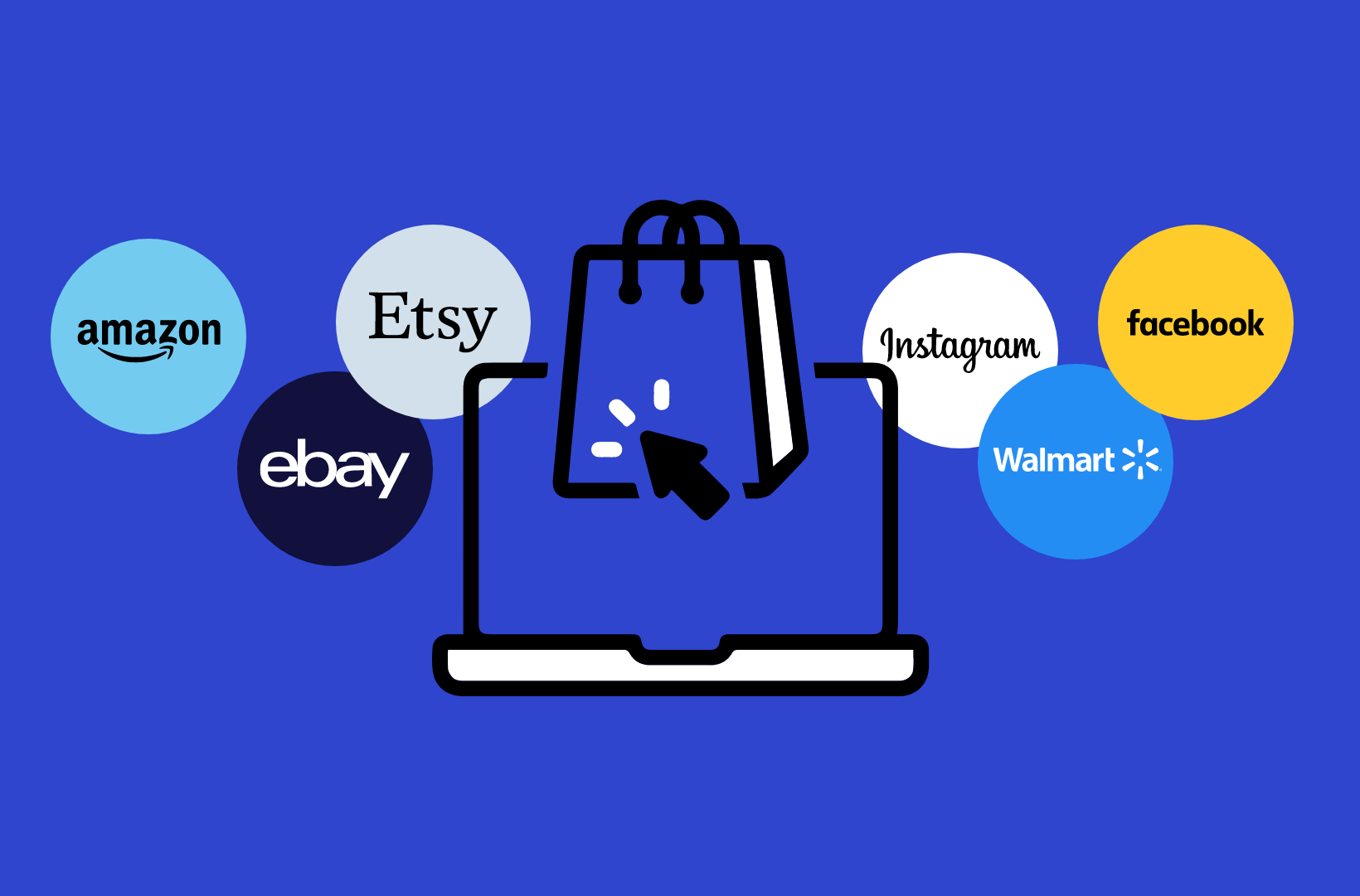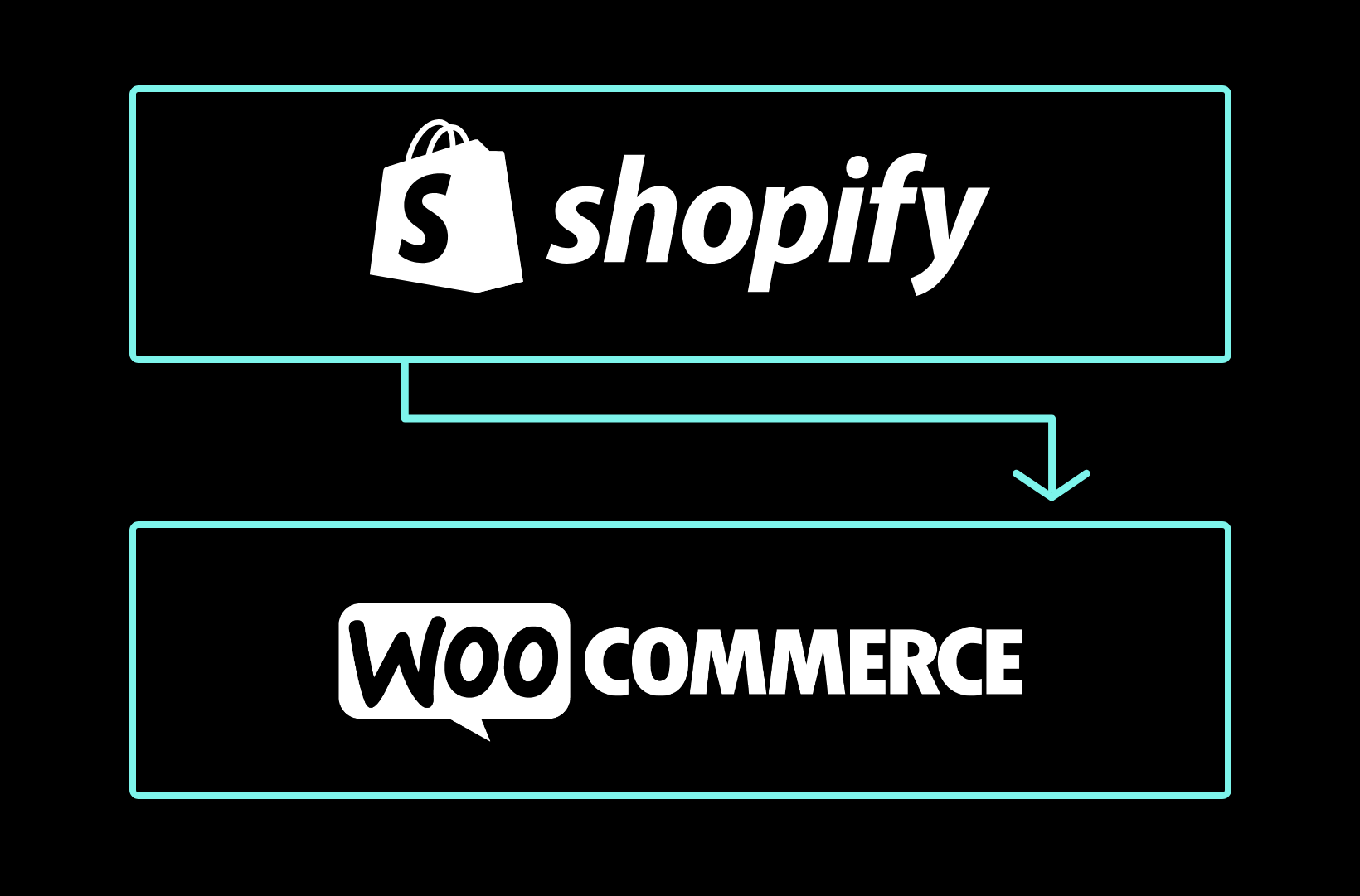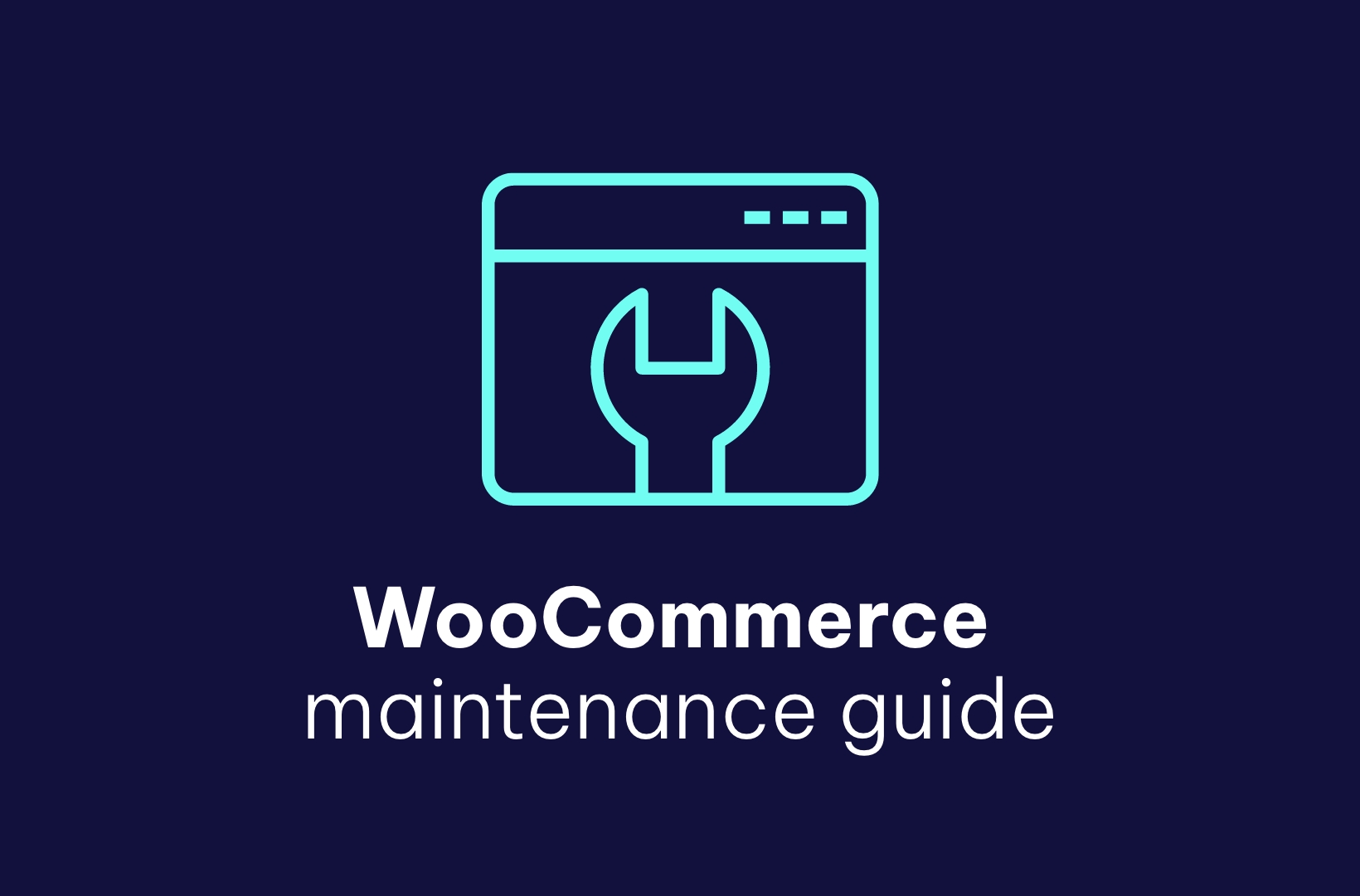Multichannel selling is an essential tactic in a world where customers expect to find their favorite brands on various online platforms – websites, social media, online marketplaces, or even mobile apps.
WooCommerce, the leading eCommerce platform, makes this possible, manageable, and profitable.
In this article, we’ll explore the hows and whys of integrating multichannel selling into your business strategy using WooCommerce. You’ll learn about the benefits of this approach, how to seamlessly integrate different channels, and best practices for managing your online presence across multiple platforms.
Grasping the concept of multichannel selling
Multichannel selling, or multichannel eCommerce, is a modern business strategy where a company extends its sales reach by utilizing multiple online and offline channels.
This approach includes leveraging popular online marketplaces like Amazon, eBay, Etsy, and Walmart, as well as harnessing the power of social media platforms such as Facebook and Instagram, mobile applications, and of course, your own website.
But why do this?
Relying solely on a single sales channel exposes businesses to market saturation, fierce competition, and the whims of changing platform rules or algorithms.
By embracing multichannel selling, companies mitigate these risks through diversification. This strategy opens doors to new customer segments, provides a global reach, and creates opportunities for cross-promotion, thereby amplifying your brand’s presence in various markets.
Diversifying across multiple sales channels inherently means more visibility and potentially a larger market share. It’s about meeting customers where they are and tailoring the shopping experience to their preferences, creating seamless, integrated, and personalized customer journeys.
And that’s where WooCommerce comes in.
Why is WooCommerce an excellent hub for multichannel selling?
Not only is it based on WordPress, but WooCommerce also easily integrates with various marketplaces, acting as a central hub for your multichannel selling strategy. When you connect your WooCommerce store with various marketplaces, there’s a two-way sync of product data, including titles, descriptions, images, prices, and availability.
This synchronization ensures that any updates in your WooCommerce store are automatically reflected across all connected platforms, maintaining uniformity in product listings and brand messaging.
Additionally, WooCommerce simplifies the complexity of handling orders from different channels. All orders, regardless of the originating platform, funnel into your WooCommerce store. This centralization allows you to manage and process orders efficiently, integrating shipping details and customer data into your workflow, thereby streamlining the entire order fulfillment process.
With WooCommerce, you can tailor your pricing and promotional strategies for different sales channels while keeping your primary pricing structure on your WooCommerce store. This flexibility is key to adapting to various marketplace dynamics and customer expectations, allowing you to optimize your sales strategy for each platform.
Utilizing WooCommerce integration plugins
You can enhance your online multichannel store by using official WooCommerce plugins and third-party extensions to facilitate integration with major marketplaces. They also help monitor stock levels and automatically update them in real-time across all platforms to maintain stock accuracy and prevent overselling.
There are two main WooCommerce integration plugin types:
- Multi-channel integration plugins, which offer integration with a variety of channels. They’re a good starting point for businesses looking to expand to several platforms simultaneously.
- Single-platform specialized plugins, which focus on integrating your WooCommerce store with one specific platform. They tend to offer deeper and more efficient functionalities for that particular channel.
As the saying goes:
“In a world where jack-of-all-trades is common, mastering one makes you exceptional.”
💡 That’s why we lean toward the specialized approach. We’ve found that single-platform specialized plugins often perform better, as they are tailored to the nuances of each channel.
Here are our single-platform specialized plugin recommendations:
- Pinterest for WooCommerce: This plugin makes your entire catalog browsable on Pinterest, allowing you to target a group of users who are constantly looking for new ideas and things to buy.
- Facebook for WooCommerce: Tailored for integrating with Facebook and Instagram, this plugin simplifies managing your social commerce, from product catalogs to advertising.
- Amazon Pay: Focused on Amazon’s payment system, this plugin integrates Amazon Pay into your WooCommerce store, offering a familiar payment option to Amazon customers.
- TikTok for WooCommerce: Showcase your WooCommerce products as TikTok ads and install the TikTok pixel and Events API to track performance.
We know deciding on the right mix of plugins can be daunting. Don’t worry; we are here to help.
At Saucal, we assist businesses in identifying the best WooCommerce integration plugins based on their unique needs, setting up these plugins for optimal performance, and troubleshooting any potential challenges. Our goal is to ensure that your multichannel selling strategy is effective, efficient, and aligned with your business objectives.
Multichannel selling with WooCommerce, while promising, requires careful planning, robust tools, and a deep understanding of the digital landscape. The potential for growth, expanded reach, and increased revenue is immense, but so are the challenges that come with managing multiple sales channels.
Kostas Seresiotis, senior product engineer at Saucal
Decoding the complexities of multichannel selling via WooCommerce
While WooCommerce integration tools offer immense benefits for multichannel selling, it’s crucial to be aware of the complexities and potential challenges that can arise.
Data format and mapping issues
Each sales channel has unique requirements for data formatting. Even with advanced integration tools, discrepancies in data mapping can occur, leading to inconsistencies in product listings.
This can cause confusion among customers and may affect their purchasing decisions. For instance, a product description that is perfectly formatted for your WooCommerce store might look disorganized or incomplete on a platform like Amazon or eBay due to different formatting standards.
Data synchronization delays
The ideal scenario in multichannel selling is real-time data synchronization. However, this is not always achievable, and delays can occur.
A WooCommerce product that sells out on your website, for example, might still be listed as available on another platform, leading to overselling. This not only affects your inventory management but can also harm your brand’s reputation due to order cancellations or delays.
Inaccurate pricing
Integration tools may not always adapt to the intricacies of different marketplaces, including currency conversion, taxes, or specific pricing rules. What works price-wise on your WooCommerce store might not be as effective or compliant on a marketplace like Etsy. This can lead to lost sales, customer dissatisfaction, or issues with profit margins.
Complex shipping and fulfillment
Multichannel selling often involves different shipping methods, fees, and packaging requirements for each channel. Managing these variations can be challenging. A one-size-fits-all approach to shipping and fulfillment rarely works, as each platform may have unique requirements or customer expectations.
For instance, customers on eBay might expect faster shipping options compared to those shopping directly from your website. Failure to adapt to these differences can lead to operational inefficiencies and increased costs.
Technical glitches
Errors in these systems can disrupt the data flow, leading to inaccuracies or downtime in your multichannel operation. A technical glitch might cause an outdated inventory count to be displayed across platforms, leading to order fulfillment issues.
Compliance and legal issues
Different platforms and regions come with their own set of legal and tax requirements. Ensuring compliance across various channels can be daunting. Tax calculations for sales made on an international marketplace might differ significantly from those on your own website. Non-compliance can result in legal complications, penalties, and damage to your brand’s reputation.
Customer service consistency
Managing customer interactions and ensuring uniform service quality can be challenging when dealing with multiple platforms. Each channel might have its own set of customer expectations and communication styles.
The response time and nature of customer service on social media platforms, for instance, might need to be more immediate and informal compared to your main website.
Marketing and brand consistency
Each platform has its audience and preferred content style. Adapting your marketing strategies while keeping your brand message cohesive is essential. What resonates with your audience on TikTok might differ from what appeals to them on Amazon.
Having said that, these obstacles can be tackled – it all starts with WooCommerce Experts.
The Saucal advantage
Navigating these complexities requires expertise and experience. Our team of WooCommerce experts here at Saucal provides valuable guidance in managing these challenges.
From setting up the right integration tools to ensuring consistency in branding, pricing, and customer service, we offer comprehensive support. Our expertise adds a layer of reliability to guarantee your multichannel workflow is operational and thriving.

This was part of the work we did for US-based dispensary Hello MOOD, who drastically needed to scale up their WooCommerce store ahead of their 4/20 sale. Hello Mood’s product database was connected to Facebook ads, and they had previously been penalized by Meta for not being able to handle the traffic coming from their ads. Though the Hello MOOD project was, at its core, a migration project to ensure optimized performance, part of this included ensuring the client could link WooCommerce products to their Meta business profile without risk.
How Saucal helps businesses leverage WooCommerce for multichannel selling
Kostas Seresiotis, our senior product engineer, notes that “Multichannel selling with WooCommerce, while promising, requires careful planning, robust tools, and a deep understanding of the digital landscape. The potential for growth, expanded reach, and increased revenue is immense, but so are the challenges that come with managing multiple sales channels.”
That’s where we can provide invaluable assistance.
With expertise in WooCommerce, our team can help you overcome the complexities of multichannel selling so your business adapts to the demands of various platforms and thrives on them.
We specialize in customizing solutions that align with your unique business needs, helping you maintain consistency in brand messaging, pricing strategies, and customer service.
Let us help you harness the power of WooCommerce for an impactful and successful multichannel selling experience.
Contact Saucal today, and we’ll craft a tailored eCommerce solution that not only meets but exceeds your business aspirations!


